U.S. Secretary of State Anthony Blinken traveled to China from April 24th to 26th to meet with senior Chinese officials. During the trip, Blinken met with Shanghai Chinese Communist Party (CCP) Secretary Chen Jining, Public Security Minister Wang Xiaohong, and Foreign Affairs Minister Wang Yi. Both sides discussed various topics, such as implementing the provisions made during the Woodside Summit, ways to increase ties between the countries, and China’s non-market economic policies and practices that distort trade or threaten the U.S.’s national security. Blinken’s trip ended with him meeting with Chinese leader Xi Jinping at the Great Hall of the People in Beijing on April 26th.
Blinken and Xi Meeting
Xi met Blinken and other State Department officials in Shandong Hall, where both sides discussed various topics. Xi began by pointing out that this year is the 45th anniversary of Sino-U.S. diplomatic relations. Furthermore, Xi said that the relationship gave both countries a lot of “important revelations: the two countries should be partners, not opponents; they should make achievements for each other, not hurt each other; they should seek common ground while reserving differences, not engage in vicious competition; they should be true to their words and deeds, and not say one thing and do another.” He then said that the three major principles of mutual respect, peaceful coexistence, and win-win cooperation are both a summary of past experience and a guide towards the future.
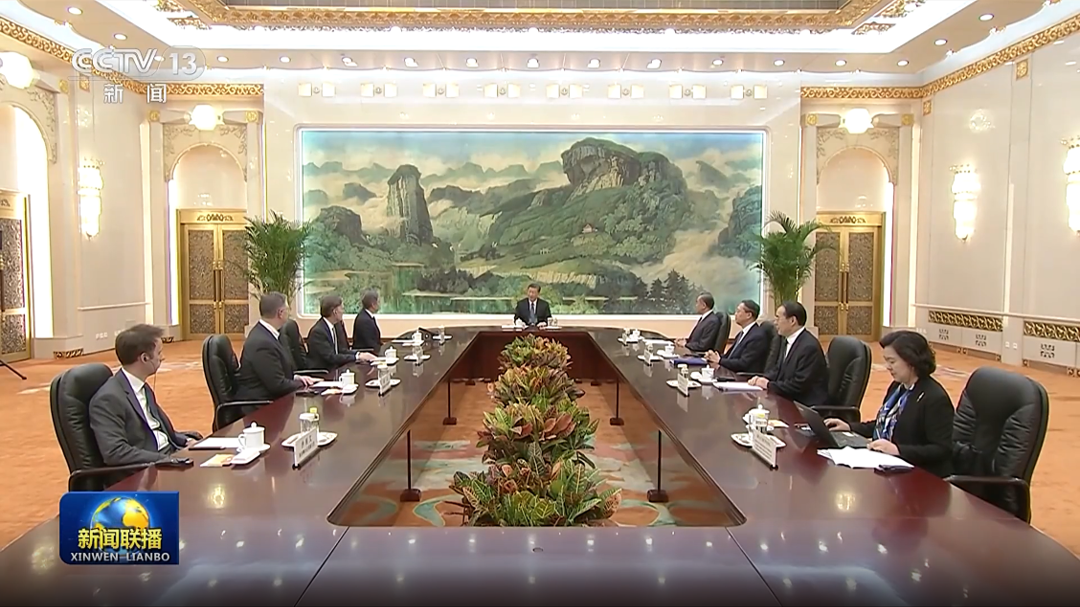
He also referenced the April 2nd phone call he had with U.S. President Biden where they discussed “considerations for the stable development of U.S.-China relations this year and proposed that both parties should be guided by peace, stability, and trust.” Xi quoted, “He who gets the big one also gets the small one,” and said that the world today is going through a tremendous change in a century. He then asked how China and the United States should deal with this change, which is both a question of the times and a question for the world. The answer is to “promote the construction of a community of human destiny, which has become the banner for Chinese diplomacy and has been welcomed by many countries in the world.” He pointed out that the Earth is so big and that mankind faces so many common challenges. The ancient Chinese had a saying of “We are in the same boat” (i.e., unite in difficult times), and Xi believes that the world needs to unite now.
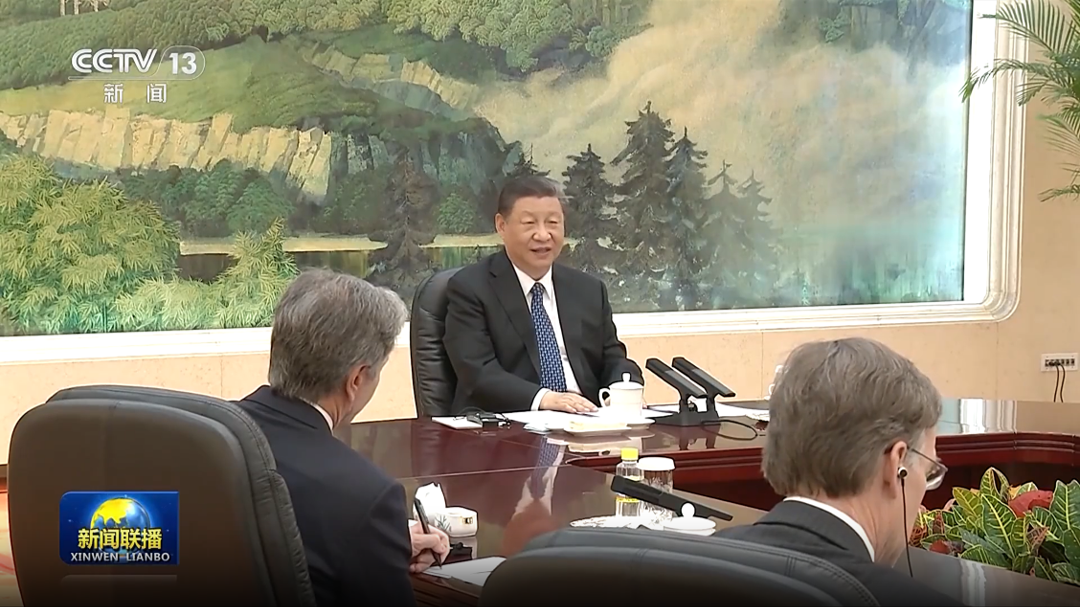
Xi said that human society is closely related and dependent on each other for blessings and misfortunes, and China “is among you in every country and that you [the United States] are among us [China].” We [China and the United States] should build up the greatest consensus for achieving win-win and multi-win situations. Xi said that this concept is the basic starting point for China’s view of the world and Sino-U.S. relations. He then explained that he believes “that a big country must act like a big country, and it must have the mindset and commitment of a big country.” Xi then said that both China and the United States “should set an example for this, take responsibility for world peace, create opportunities for the development of all countries, provide public goods for the globe, and play an active role in world solidarity.”
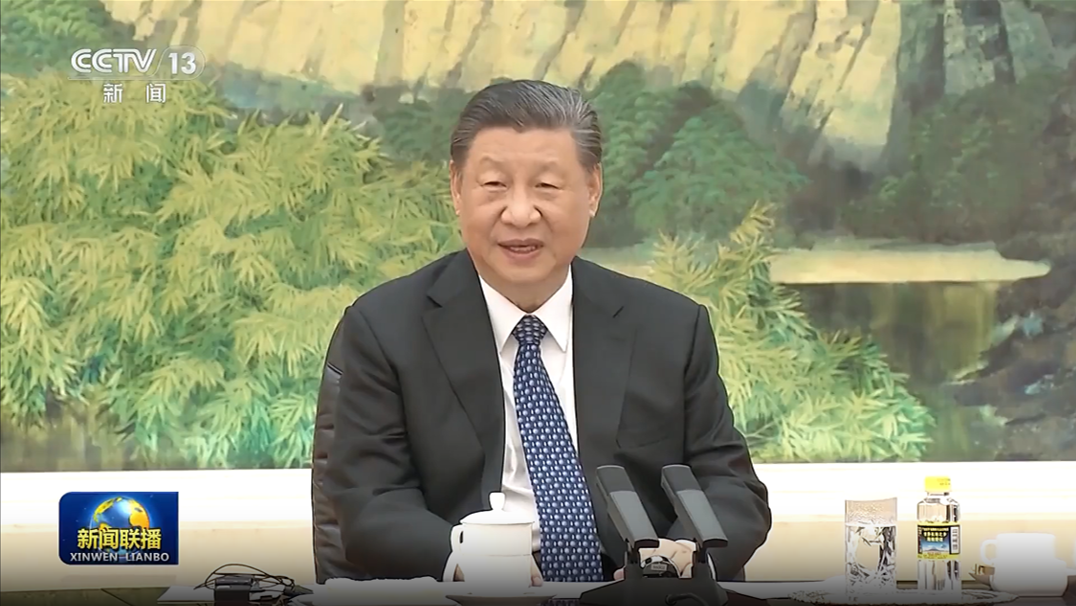
Xi also mentioned his meeting with President Biden in San Francisco in November 2023, where they proposed five pillars “to jointly establish positive knowledge, effectively and jointly control differences, jointly promote mutually beneficial cooperation, jointly assume the responsibilities of major powers, and jointly promote cultural exchanges.” Xi further emphasized that these are the four pillars to building China-U.S. relations, and “once the major principles are set, other issues will be easier to handle.” He also said that China is willing to cooperate with the United States, but cooperation should be two-way, and we are not afraid of competition, but it should progress together and not be a zero-sum game. Xi also insisted on non-alignment and said that the United States should not engage in “small circles,” i.e. exclusive blocs. Furthermore, Xi said both countries “can have their own allies and partners, and the countries should not target, oppose, or harm each other.” China is happy to see a “self-confident, open, and prosperous United States, and hopes that the country will also take a positive view of China’s development.”
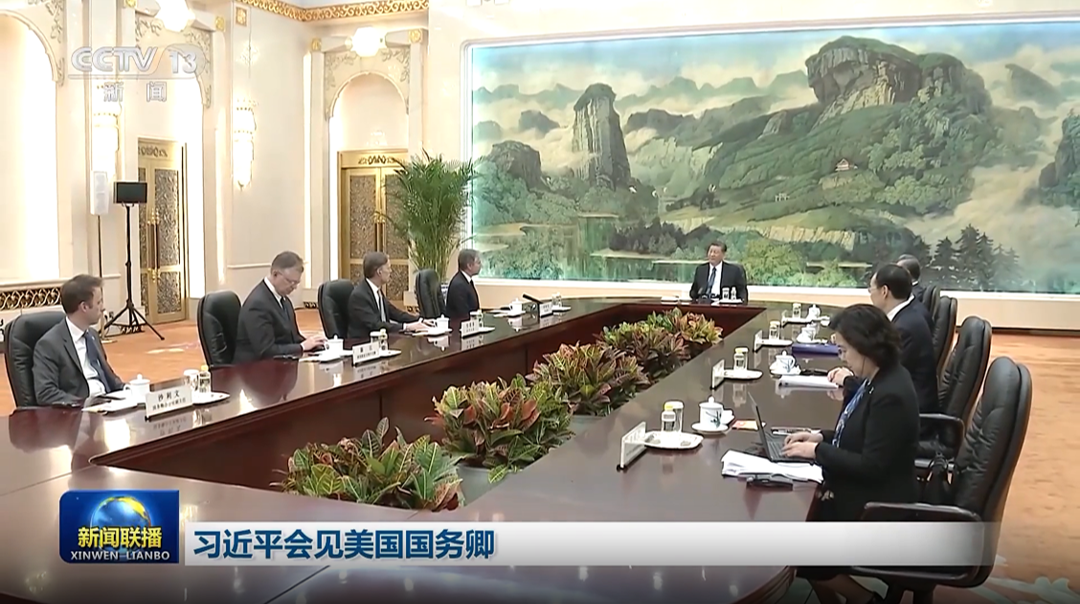
The Chinese leader emphasized a Chinese saying: “if you don’t advance day by day, you will retreat day by day.” Xi said the same is true of the Sino-U.S. relationship. Furthermore, he said the momentum of stable relations between China and the United States has not come easily. He said, “it is hoped that the teams of both sides will continue to work hard to actively implement the “San Francisco Vision” reached by President Biden so that Sino-U.S. relations can truly stabilize, get better, and move forward.”
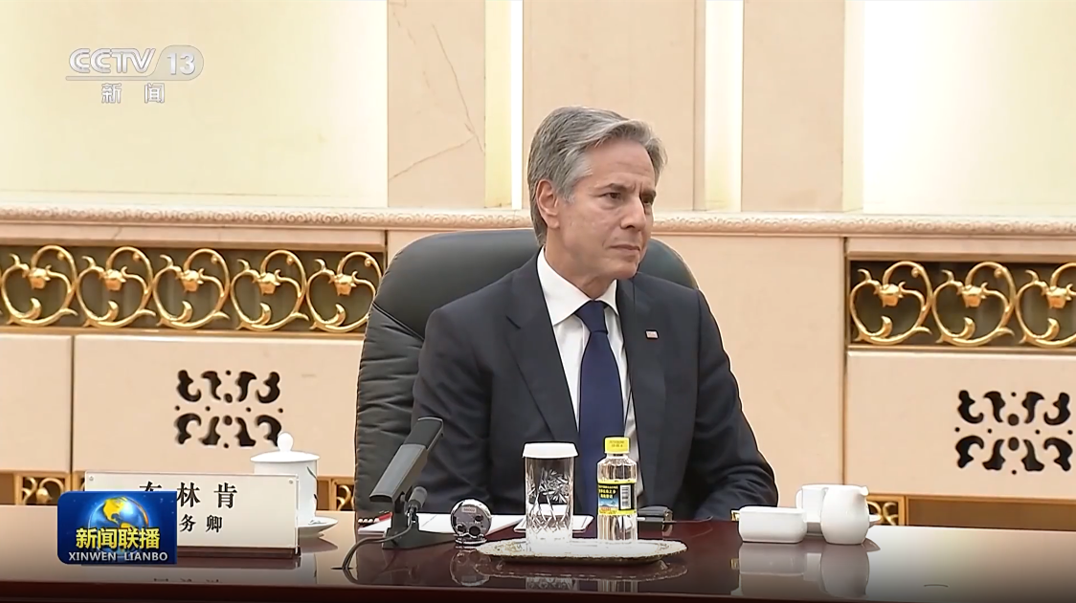
Blinken “conveyed President Biden’s greetings to Xi, saying that since President Biden’s meeting with Xi in San Francisco, the two countries have made positive progress in cooperation in the fields of exchange between the two countries, drug control, artificial intelligence, and cultural exchanges.” He also said the world faces several complex challenges that require cooperation between the United States and China. Blinken then highlighted that during his trip, he met with Americans from all walks of life in China who also wanted to see relations between the United States and China improve.
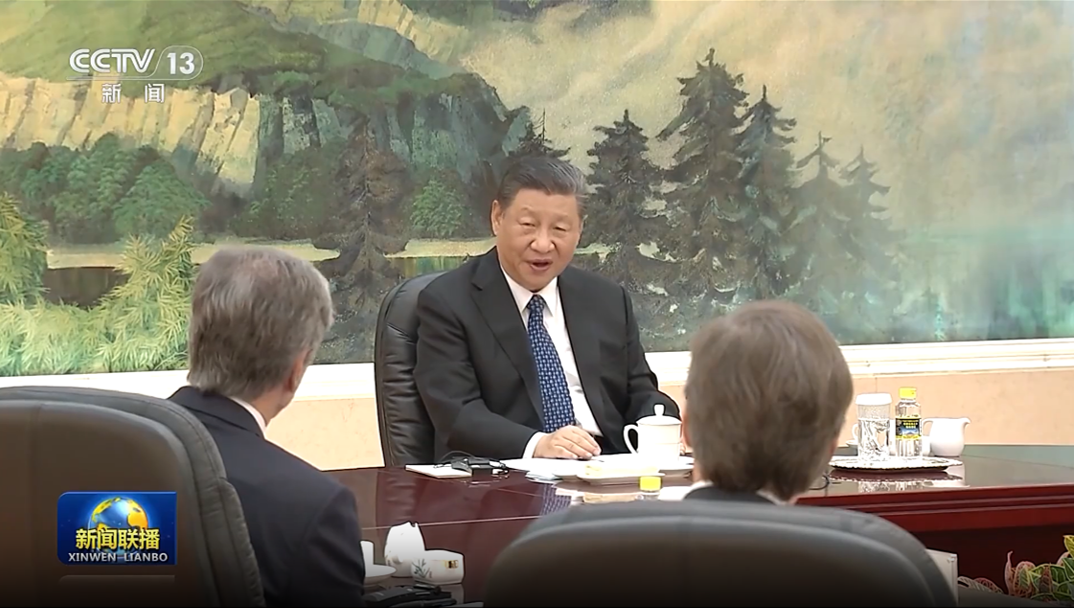
He then emphasized that the “United States does not seek a ‘new Cold War,’ does not seek to change China’s institutions, does not seek to contain China’s development, does not seek to oppose China through alliances, and has no intention of engaging in conflict with China.” Furthermore, Blinken also said that the “United States adheres to the One-China Policy and hopes to maintain communication with China, earnestly implement the San Francisco Consensus reached by the two heads of state, seek more cooperation, avoid misunderstandings and miscalculations, responsibly manage differences, and promote the stable development of U.S.-China relations.”
Analysis
The meeting between Blinken and Xi indicates that China does not want to improve its diplomatic relationship with the United States because it views its economic relationship as more important. Furthermore, Xi illustrated his unwillingness to increase diplomatic relations with the United States through his meeting with Blinken.
China’s emphasis on its economic relationship with the United States is due to the country’s need to increase foreign investment to stabilize its economy. For example, China’s inbound foreign investment decreased by approximately 26 percent, or $42 billion USD (302 billion RMB), from January to March. The decline occurred as China attempted to alleviate foreign companies’ concerns over several issues related to its business environment. The ability for foreign companies to comply with China’s counterespionage and protecting state secrets laws is the most significant issue. However, despite meeting with Vice Commerce Minister Ling Ji and Xi, CEOs and other business executives are still hesitant to invest in China due to the significant ‘chilling’ effect that the laws have on their operations. Furthermore, this effect also negatively affects these companies’ ability to conduct due diligence investigations into Chinese companies during the merger and acquisition process.
China’s expanding real estate crisis, decreased manufacturing output, and weak consumer spending are also negatively affecting and destabilizing the country’s economy. The Chinese government believes that it could not only stabilize its economy but enhance its recovery by helping to offset any investment it makes in infrastructure and high-tech manufacturing. China wants to offset the amount of capital it invests in an effort to lower the debt local governments are taking on to invest in the two sectors. However, this effort likely accelerated in mid- to late-April due to the rating company Fitch cutting its outlook on China’s sovereign credit rating to negative. Another factor that likely increased pressure on China were manufacturing outputs and retail sales missing their growth forecasts for March, which indicate that recovery momentum is still weak.
The meeting also indicated that Xi did not care to enhance China’s diplomatic relationship with the United States. The table used for the meeting are similar to conference tables found in company boardrooms, which caused Blinken to be seated far away from Xi rather than being seated closer to him. The seating arrangement between Blinken and Xi differed significantly from how Chinese Premier Li Qiang sat with U.S. Treasury Secretary Janet Yellen and Tesla CEO Elon Musk when he met with them in the same month. Li sat closer to both Yellen and Elon, and the seating arrangement presented a more informal setting than the one presented at the Blinken and Xi meeting.
Yellen and Li also met in the Shandong Hall, the same hall where Xi met Blinken, but a small table sat between the two officials instead of a conference table. The Ministry of Foreign Affairs likely selected the table for the meeting to show the United States that diplomacy is not China’s main concern, but the economy is. While a counterargument could be made that Xi usually meets with foreign dignitaries at a conference table, Xi sat closer to foreign officials and businessmen. For example, Xi met with former Microsoft CEO Bill Gates in June 2023 at the Daioyutai State Guest House.
Xi’s comments also showed how he viewed economic cooperation with a greater emphasis than diplomatic cooperation. For example, Xi made two references to “win-win cooperation” in his remarks during the meeting. The phrase means that the United States should cooperate with China on economic matters rather than increase diplomatic relations. Doing so would allow China and the United States to win by cooperating on directives that the country wants, such as increased investment from the U.S. and foreign businesses. Furthermore, Xi also said the concept is the basic starting point for how China views its relationship with the United States. Xi pointed this out to show Blinken that relations can improve between the two countries if the United States understands that China wants cooperation on its terms.
Xi’s comments about how both sides should seek common ground while still having differences and not say one thing and do another is an example of the dynamic. Xi views the United States continuing to increase export controls and not advocating American businesses investing in China as decoupling from the country. This decoupling goes against what China and the United States agreed to during the November 2023 meeting in San Francisco, which is why Xi referenced the summit in his remarks. Xi’s comments about the United States viewing China’s development positively are also a reference to the fact that China’s economic rise cannot be stopped. However, China’s rise will also mean that the United States can still be a confident, open, and prosperous country if it does not interfere with the process.


